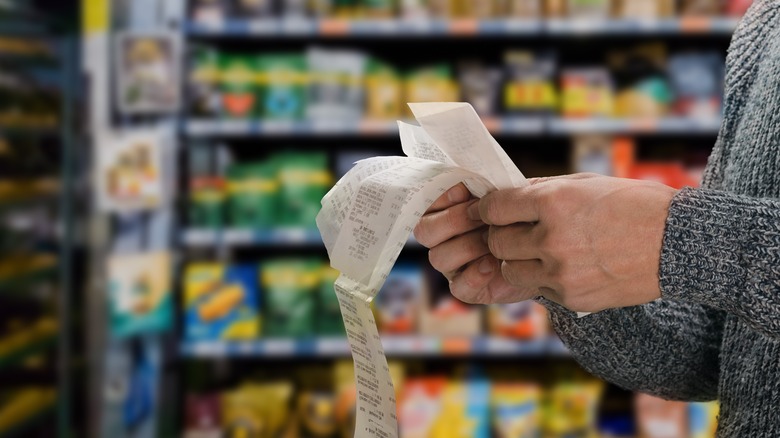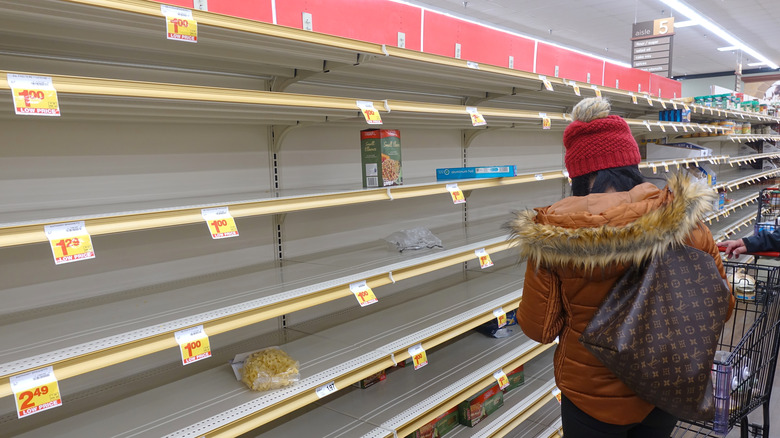What We Failed To Change After The Past Food Crises
The average cost of food around the globe has continued to rise at alarming rates. CBS News reports that Americans are paying 10% more for food at the grocery store than they were a year ago, and some items such as beef are even higher. Meanwhile, in the United Kingdom, pasta prices have risen 50%, and other items like bread and potato chips have risen by roughly 15% (via BBC). This crisis has been brought on by supply chain issues, and the war in Ukraine causing food shortages (via New York Times).
Inflation is another contributing factor. Economies around the globe are reporting record highs that have been unmatched for decades (via New York Times). Some believe that even as inflation rates are tempered by government action, and stabilizing markets, food prices will remain high due to corporate greed.
Unfortunately, this is far from the first global food crisis that the world has suffered from. Food Navigator notes that another global food crisis occurred in 2007 and 2008 due to similar circumstances. At the time the cost of rice doubled and wheat prices rose by 136%, according to global development reporters Devex. An overreliance on imported food supplies and predatory investing in commodity markets caused this crisis which led to global unrest and food insecurity for many (via Food Navigator).
All of this information then begs the question, why are we making the same mistakes again?
Repeating history
Food Navigator reports that an analysis conducted by International Panel of Experts on Sustainable Food Systems (IPES-Food) experts shows that the world failed to learn enough lessons from the 2007-2008 global food crisis. These experts say that the current crisis illustrates four critical flaws in our food systems that were never resolved after the former disaster.
According to Food Navigator, those flaws are relying too heavily on food from other countries, a lack of transparency in commodity markets, production systems that are so inflexible that it's difficult for producers like farmers to make changes and respond to issues, and a trifecta of revolving poverty, conflict and climate change, which means millions of people lack the money or resources to weather other issues.
IPES-Food's analysis pointed out the global food system's failure to learn from the past, but they did also outline some solutions to the problem. They recommend cracking down on some of the excessive commodity speculations, enhancing the market's transparency, providing financial assistance to the countries most affected, building regional grain reserves, and diversifying food production among other items.
Devex also pointed out similarities between the two crises and illustrated ways that economies can still learn and improve from the previous crisis. They recommend avoiding export bans, supporting farmers, and improving data for resilient food systems.

